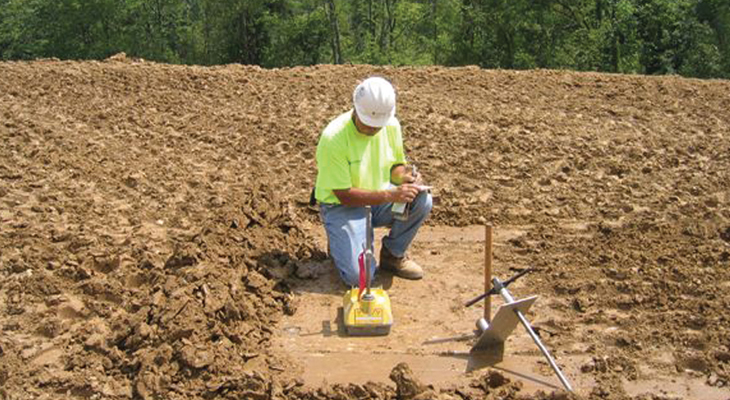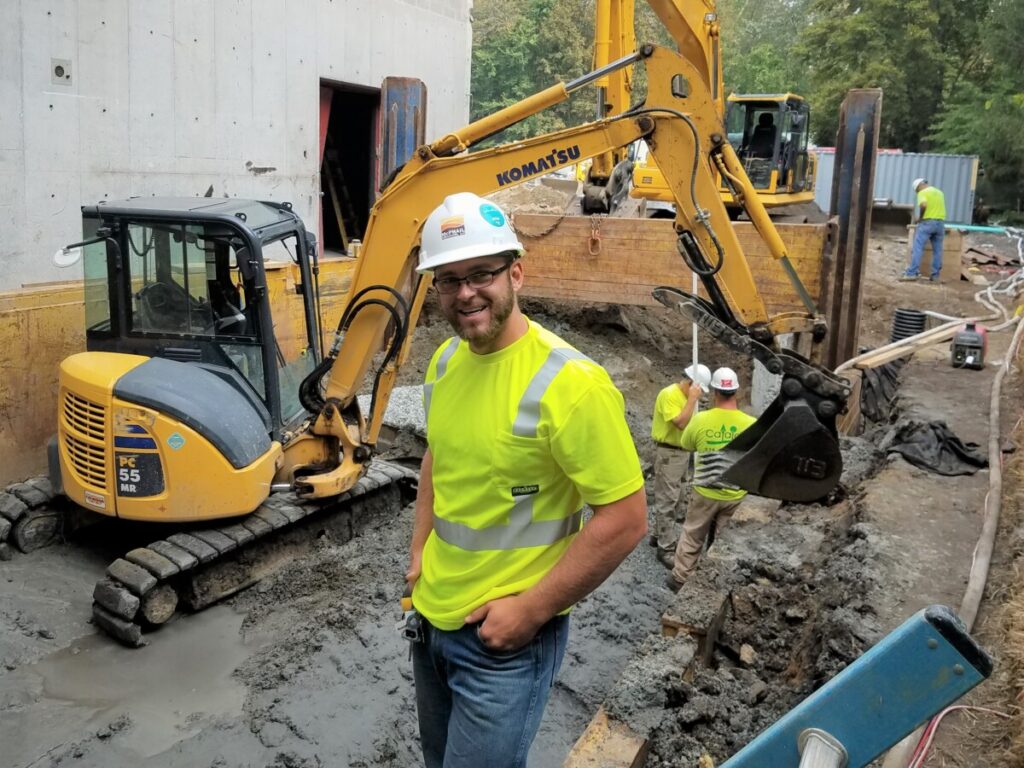The Role of a Consulting Engineer in Ensuring Safe and Effective Building Practices
Wiki Article
Recognizing the Necessary Role of the Geotechnical Industry in Modern Building And Construction Projects and Facilities Growth
The geotechnical market is a foundation of modern-day construction and infrastructure advancement, supplying critical insights into soil habits that straight affect task end results. Via advanced soil assessments and innovative engineering services, geotechnical experts not only make sure architectural stability yet additionally address sustainability problems in the middle of advancing ecological standards.Value of Soil Assessment
Soil assessment plays a vital function in the geotechnical market, acting as the foundation for educated decision-making in construction tasks. Exact dirt examination is necessary for figuring out the suitability of a site for numerous kinds of frameworks, consisting of household homes, business structures, and bridges. By evaluating soil make-up, thickness, dampness, and stamina web content, engineers can prepare for prospective challenges and minimize dangers connected with ground instability, disintegration, and settlement.The assessment procedure usually involves a collection of tests and observations that provide essential info about the subsurface problems. This data notifies the design and building and construction processes, making sure that structures are constructed on solid ground with ample support. Recognizing the soil profile makes it possible for engineers to select proper construction techniques and products, maximizing resource use and minimizing prices.
Along with ensuring structural stability, soil evaluation adds to environmental sustainability. By recognizing potential contamination or damaging results on surrounding environments, designers can implement methods to protect these natural deposits. On the whole, comprehensive dirt analysis is indispensable in the geotechnical area, underpinning the safety and security, efficiency, and ecological responsibility of building projects.
Key Geotechnical Techniques
A variety of vital geotechnical strategies are employed to improve the security and assess and efficiency of construction sites. One foundational approach is dirt tasting and screening, which allows designers to figure out the chemical and physical homes of the ground. This details is vital for making educated choices concerning foundation style and building approaches.An additional necessary strategy is site characterization, which involves the comprehensive evaluation of dirt and rock problems with techniques such as borehole drilling and in-situ testing. Strategies like Requirement Infiltration Examinations (SPT) and Cone Infiltration Examinations (CPT) supply important data on dirt stamina and stratigraphy.
Ground improvement techniques, such as dirt stabilization and grouting, are additionally crucial in improving the load-bearing capacity of weak dirts. These techniques can mitigate negotiation and enhance overall website conditions.
In addition, slope security evaluation is vital for determining potential landslide dangers and making sure the safety of excavations. This evaluation typically uses mathematical modeling and limit balance approaches to anticipate dirt behavior under various problems.
Integrating these geotechnical strategies into building and construction planning not just optimizes task outcomes yet also makes sure the long-term sustainability of facilities development.
Influence On Building And Construction Security

Furthermore, reliable geotechnical engineering entails implementing reduction strategies for identified dangers. This may consist of dirt stabilization methods, preserving frameworks, or drainage systems to reduce hydrostatic pressure. By dealing with these aspects, building groups can minimize the probability of crashes and improve employee safety.
Furthermore, constant surveillance of site conditions is important throughout construction. Geotechnical instruments can offer real-time information pertaining to ground activity and stability, allowing for timely interventions when essential.
In essence, the geotechnical industry plays a critical function in securing building and construction tasks. By prioritizing ground integrity and employing rigorous analysis methods, the geotechnical sector not only protects the workforce but also adds to the longevity and reliability of constructed infrastructure.
Sustainability in Geotechnical Practices

Additionally, geotechnical engineers are currently using innovative modern technologies, such as geosynthetics, which boost dirt security while minimizing the quantity of material required. This not only conserves sources yet additionally causes much less waste generation (geotechnical engineers). The assimilation of lasting style principles into geotechnical design motivates making use of renewable power resources in building processes, further minimizing carbon discharges
By performing these evaluations, geotechnical specialists can develop approaches that minimize negative effects, making sure compliance with environmental laws. In general, the focus on sustainability within geotechnical practices not only adds to the longevity and durability of framework but likewise promotes a responsible technique to land and resource monitoring.
Future Trends in Geotechnical Design
Advancement is driving the future of geotechnical engineering, as arising innovations and approaches improve the market. The combination of sophisticated data analytics and expert system is established to revolutionize website investigation and threat evaluation, making it possible for designers to make even more informed decisions based on real-time data. The usage of geosynthetic products is acquiring traction, using sustainable remedies that improve dirt stability and lower environmental influence - consulting engineer.An additional considerable pattern is the adoption of automated and robot systems for tracking and construction procedures. These modern technologies not only improve precision but additionally improve security by reducing human involvement in harmful atmospheres. In addition, the application of Building Details Modeling (BIM) in geotechnical style facilitates enhanced collaboration amongst stakeholders, optimizing task shipment and lowering expenses.
As environment modification positions brand-new challenges, the market is increasingly concentrating on resilience and flexibility in style techniques, guaranteeing framework can endure severe weather occasions. Ultimately, the continuous fad towards sustainability will drive technology in environment-friendly products and techniques, straightening geotechnical engineering with wider ecological objectives. Jointly, these trends will certainly form a more efficient, sustainable, and durable geotechnical landscape for future tasks.
Conclusion

The geotechnical industry is a keystone of modern-day building and facilities development, giving essential understandings into soil actions that straight influence task results. engineer of record.Dirt evaluation plays a vital role in the geotechnical sector, serving as the foundation for educated decision-making in building projects. Generally, complete soil analysis is important in the geotechnical field, underpinning the safety and security, efficiency, and ecological obligation of building and construction jobs
Construction safety and security is tailings engineer substantially influenced by geotechnical techniques, as the security and honesty of the ground directly influence the general safety of a building site.In conclusion, the geotechnical industry is crucial in contemporary building and construction and infrastructure growth, providing important assessments that make sure architectural stability and safety and security.
Report this wiki page